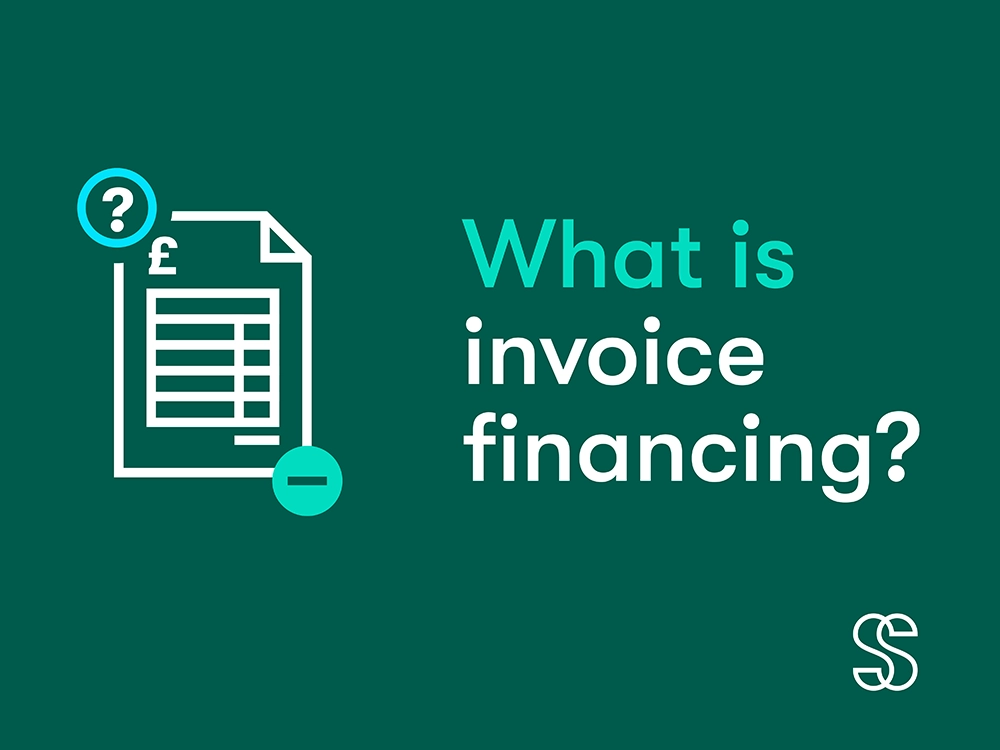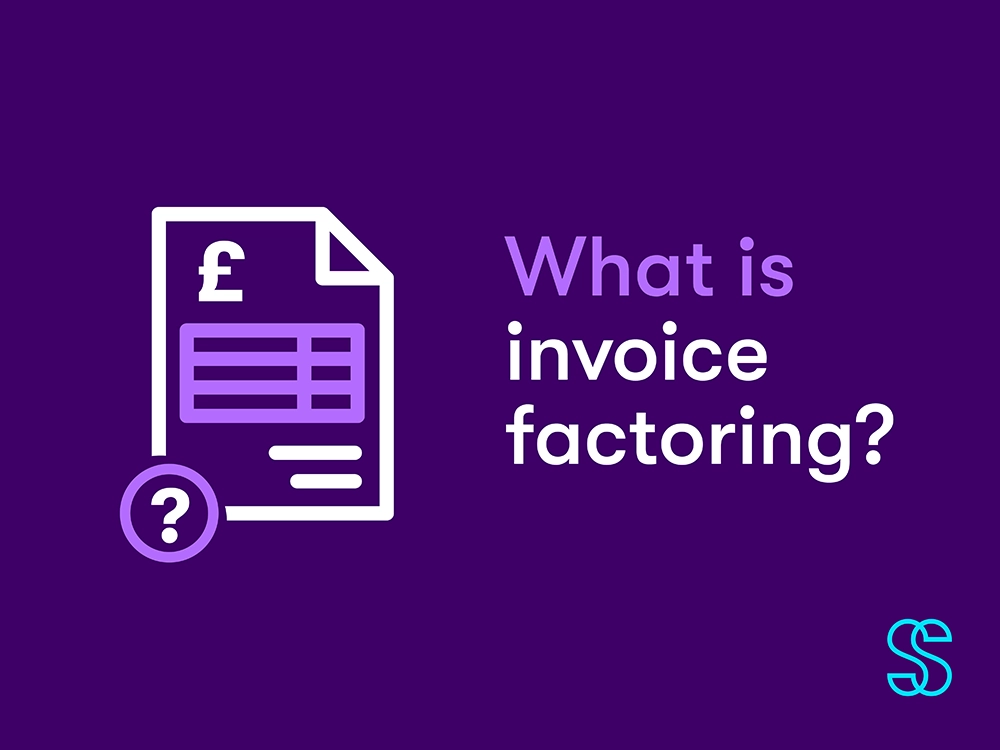What is bad debt management and how to protect your business
CFOs and Finance Directors often face a daunting challenge that can significantly impact their bottom line: bad debt. Often referred to as non-performing assets or delinquent accounts, it can hinder a company’s growth and financial stability if not managed effectively. For recruitment companies to remain financially stable and profitable, bad debt management is essential to preserving client relationships and ensuring long-term growth.
In this blog, we’ll delve into the importance of healthy debt management for recruitment agencies, highlighting key strategies that can ensure their financial stability and long-term growth.
Table of contents:
Understanding bad debt What constitutes bad debt? What is the impact of bad debt? What is bad debt protection? Why Consider bad debt protection? Understanding your debtors Know Your Client (KYC) Monitoring aged debt Bad debt protection plans How does Sonovate help you to protect your business?Understanding bad debt
Bad debt occurs when a borrower is unable to repay a debt, typically due to financial hardship or other unforeseen circumstances. This situation can arise in various sectors, including banking, retail, and lending institutions. Unchecked bad debt can lead to reduced cash flow, increased borrowing costs, and even bankruptcy in extreme cases. Therefore, adopting proactive strategies to manage bad debt is vital for sustaining a healthy financial ecosystem.
1. Rigorous Credit Screening
Prevention is often the best medicine. To minimise the risk of bad debt, it’s essential to implement a rigorous credit screening process before extending credit to customers or clients. This involves evaluating their credit history, financial stability, and repayment capacity. Utilising credit reports, conducting background checks, and assessing income sources can provide valuable insights into the potential borrower’s financial health. By only offering credit to individuals or businesses with a proven track record of responsible financial behaviour, you can significantly reduce the risk of future bad debt.
2. Clear Terms and Conditions
One of the main reasons bad debt occurs is misunderstandings or disputes regarding repayment terms. To address this, it’s crucial to establish clear and transparent terms and conditions for credit and payment agreements. These terms should outline the repayment schedule, interest rates, late payment penalties, and any other relevant information. By ensuring that both parties are on the same page from the outset, you can minimise the likelihood of disputes and improve the chances of timely repayments.
3. Effective Communication
Maintaining open lines of communication with borrowers is key to managing bad debt. If a borrower is facing financial difficulties, ignoring the issue can lead to further delinquency. Encourage your debtors to reach out at the first sign of trouble. Implement a dedicated customer service team that can offer solutions, such as temporary repayment plans or debt consolidation options. Taking a compassionate and understanding approach can foster goodwill and increase the chances of recovering the debt.
4. Timely Follow-Up
When payments become overdue, swift and systematic follow-up is essential. Establish a structured process for sending reminders and notices to delinquent borrowers. Often, a gentle nudge is all that’s needed to prompt repayment. Start with friendly reminders and escalate to firmer communications if necessary. Outsourcing this process to a collections agency can also be a viable option for businesses that lack the resources or expertise to manage delinquent accounts effectively.
5. Negotiation and Settlement
In cases where the borrower’s financial situation makes full repayment impossible, consider negotiating a settlement. A settlement involves agreeing to accept a reduced amount as full repayment, provided the debtor pays promptly. While this may result in a loss for the lender, it can be a more viable option than no repayment at all. Work with legal and financial advisors to ensure that any settlement agreements are legally binding and clearly documented.
6. Legal Recourse
When all other avenues have been exhausted, legal action might be necessary. Before pursuing this path, carefully assess the potential costs, time, and likelihood of success. Legal proceedings can be lengthy and expensive, and even if a court ruling is obtained in your favour, there’s no guarantee of full recovery. However, the mere threat of legal action can sometimes motivate debtors to prioritise repayment.
7. Continuous Review and Adaptation
The financial landscape is dynamic, and what works today might not work tomorrow. Therefore, it’s crucial to continuously review and adapt your bad debt management strategies. Analyse the effectiveness of your credit screening process, communication methods, and collection procedures regularly. Implement any necessary changes to address emerging challenges and trends in the market.
8. Data Analytics and Technology
In the age of technology, data analytics can provide valuable insights for managing bad debt. Analyse historical data to identify patterns and trends related to bad debt. This information can help refine your credit screening process, predict potential risks, and optimise collection strategies. Additionally, leverage technology for automated payment reminders and digital communication channels to enhance efficiency and effectiveness.
The importance of bad debt protection
What constitutes bad debt?
As a starting point, it’s essential to first understand what constitutes “bad debt”, also known as uncollectible accounts. It arises when a customer or client fails to make payments for goods or services rendered. This can be due to insolvency, bankruptcy, or a myriad of other reasons. When left unaddressed, it can accumulate and cast a shadow over a company’s financial health.
What is the impact of bad debt?
The impact of bad debt is far-reaching and can send shockwaves through an organisation’s operations. First and foremost, it directly affects cash flow. A sudden influx of unpaid invoices can disrupt a company’s ability to meet its financial obligations, including paying vendors, employees, and creditors. This, in turn, can lead to a domino effect of strained relationships and potentially damage a company’s reputation.
Moreover, bad debt erodes profitability. When revenue that was expected to materialise from completed transactions remains outstanding, the anticipated returns on investments don’t occur. This hampers a company’s ability to allocate resources for growth, innovation, and overall sustainability.
What is bad debt protection?
Enter bad debt protection – a financial safety net that shields businesses from the adverse effects of non-payment. It is typically offered by financial institutions or specialised providers. It involves insuring a portion of or the entire accounts receivable, which represents the money owed by customers to a business. In essence, this protection guarantees that a business will receive payment even if the customer defaults.
Bad-debt protection can take various forms, such as credit insurance and factoring. Credit insurance safeguards businesses by providing coverage against non-payment due to insolvency, default, or political risk. Factoring, on the other hand, involves selling accounts receivable to a third party (factor) at a discount in exchange for immediate cash. While these mechanisms may come with associated costs, they offer a powerful shield against the detrimental impact of bad debt.
Why consider bad debt protection?
- Safeguarding Cash Flow Stability: As the lifeblood of any business, maintaining healthy cash flow is imperative. Bad debt protection ensures that a steady stream of revenue continues to flow, minimising disruptions caused by unpaid invoices.
- Improving Risk Management: The business landscape is inherently uncertain, with unforeseen events capable of destabilising even the most robust organisations. Bad debt protection serves as a potent risk management tool, fortifying a company’s resilience against market fluctuations and unexpected shocks.
- Fostering Growth: Businesses often require access to capital for expansion, innovation, and expenditure. With bad debt protection in place, financial institutions are more likely to extend credit, recognising the reduced risk associated with insured accounts receivable.
- Preserving Relationships: The business-customer relationship is built on trust. When customers default, it strains this trust and can result in severed ties. Bad debt protection ensures that companies can still honour their commitments even when customers face financial hardships, preserving relationships and reputation.
- Empowering Decision-Making: Armed with the assurance of bad debt protection, businesses can make informed decisions without the looming fear of unpaid invoices. This empowerment allows for strategic planning and execution.
Let’s now delve into the importance of healthy debt management for recruitment agencies, highlighting key strategies that can ensure your financial stability and long-term growth.
Understanding your debtors
Recruitment agencies often deal with a diverse clientele, ranging from startups to established corporations. While taking on new debtors is crucial for expanding operations, it’s imperative to understand the creditworthiness of potential clients. This is where a well-thought-out credit control process comes into play. Implementing appropriate credit control measures allows agencies to assess the financial stability of prospective clients before extending credit.
Engaging in thorough background checks and financial assessments helps minimise the risk of bad debt. Consider setting credit limits based on the client’s financial standing and payment history. By understanding your debtors, you can proactively address potential issues, tailor payment terms, and maintain a healthier financial relationship.
Know Your Client (KYC)
In the realm of finance, the “Know Your Customer” (KYC) principle is a cornerstone of responsible lending and risk management. For recruitment agencies, a robust KYC policy is equally essential. Establishing a comprehensive KYC process involves conducting thorough due diligence on potential clients before entering into business agreements.
A rigorous policy involves gathering relevant information about the client’s financial health, business history, and payment practices. This information arms you with the knowledge necessary to make informed decisions about credit extensions. Additionally, a well-defined process showcases your commitment to responsible financial practices, building trust with both clients and financial partners.
Monitoring aged debt
In the fast-paced world of recruitment, time is of the essence, and payments should ideally be received on time. However, the reality often involves delayed payments or unforeseen cash flow disruptions. This is where the concept of “aged debt” comes into play.
Creating regular reports or routinely reviewing aged debt can provide invaluable insights into your agency’s financial health. Identifying patterns of late payments or persistent non-payment allows you to take swift action. Timely communication can be the key to resolving payment issues before they snowball into significant financial setbacks. Moreover, monitoring aged debt empowers you to prioritise efforts, allocate resources efficiently, and maintain a steady cash flow – the lifeblood of any business.
Bad debt protection plans
In an ideal world, every client would fulfil their financial obligations promptly. However, economic uncertainties and unforeseen business challenges can lead to bad debt – the nightmare of every recruitment agency. To mitigate this risk, investing in a protection plan is a strategic move.
A bad debt protection plan, also known as credit insurance, acts as a safeguard against non-payment by clients. It offers a layer of financial security by covering a portion of outstanding debts in case of client insolvency or default. This not only provides peace of mind but also ensures that your agency’s bottom line remains intact, even in the face of adverse situations.
How does Sonovate help you to protect your business?
If you are a recruitment business, a consultancy who places contractors or an online freelancing platform, Sonovate gives you the ideal invoice financing experience, coupled with industry leading bad debt protection and credit control. You can delegate your credit control to us or choose the CHOCC (Customer Handles Own Credit Control) option. Our technology will help you get peace of mind.
Here’s how we protect your business when you take out a financing facility with Sonovate:
- Credit control. Our in-house credit and risk management experts will conduct due diligence about your clients, helping you get a better understanding of their business and credit history.
- Bad-Debt Protection: We offer 95% bad debt protection as standard give you peace of mind.
- Aged debt reporting: Our new platform offers real time, detailed reporting to help you stay ahead of the game by understanding the status of your debt and monitoring late payments.
Get started with us today to keep your business protected and your cashflow flowing.
Get started today!




